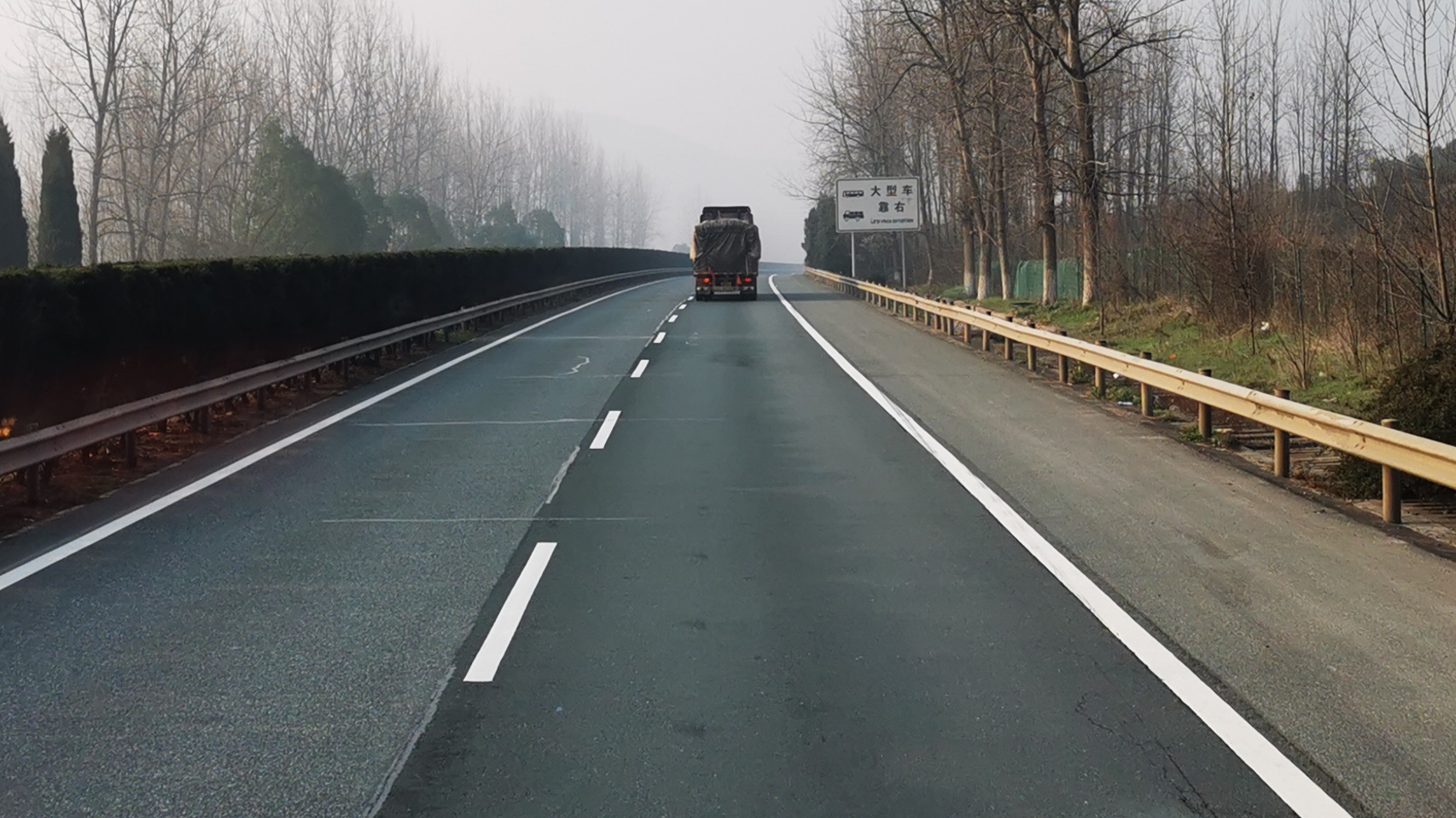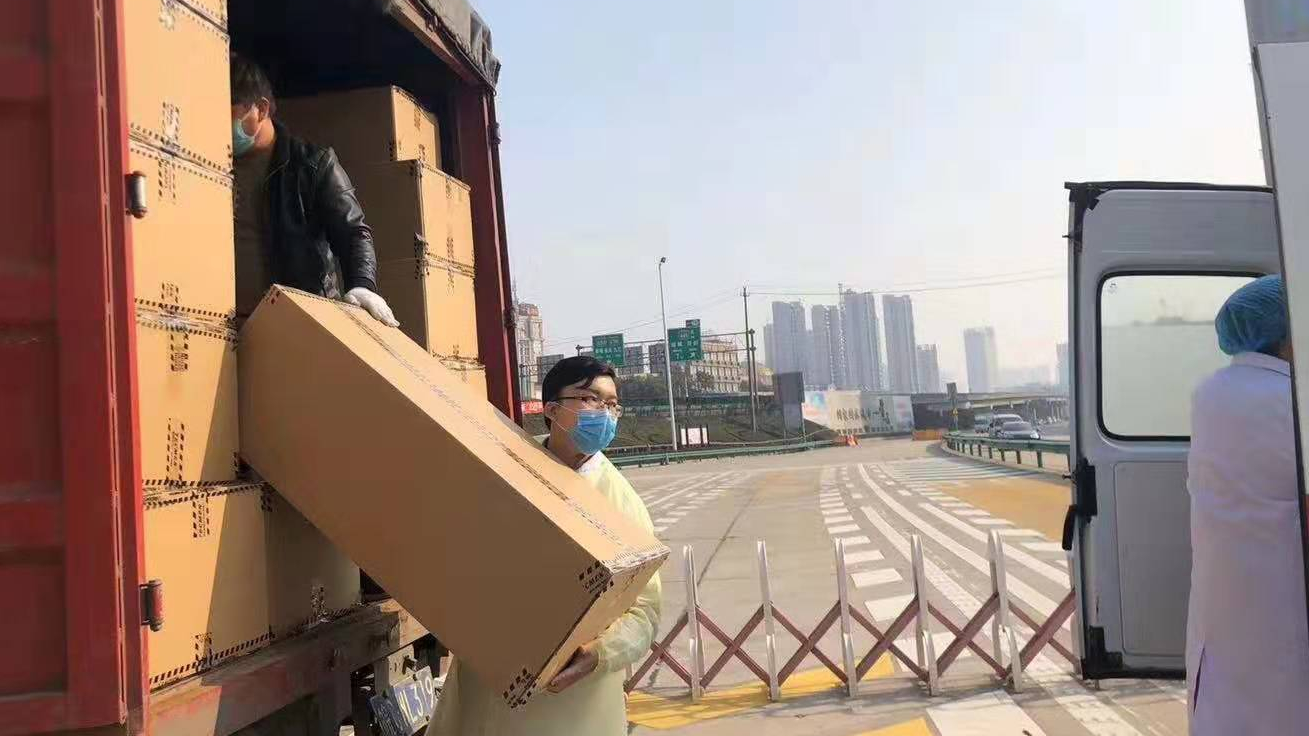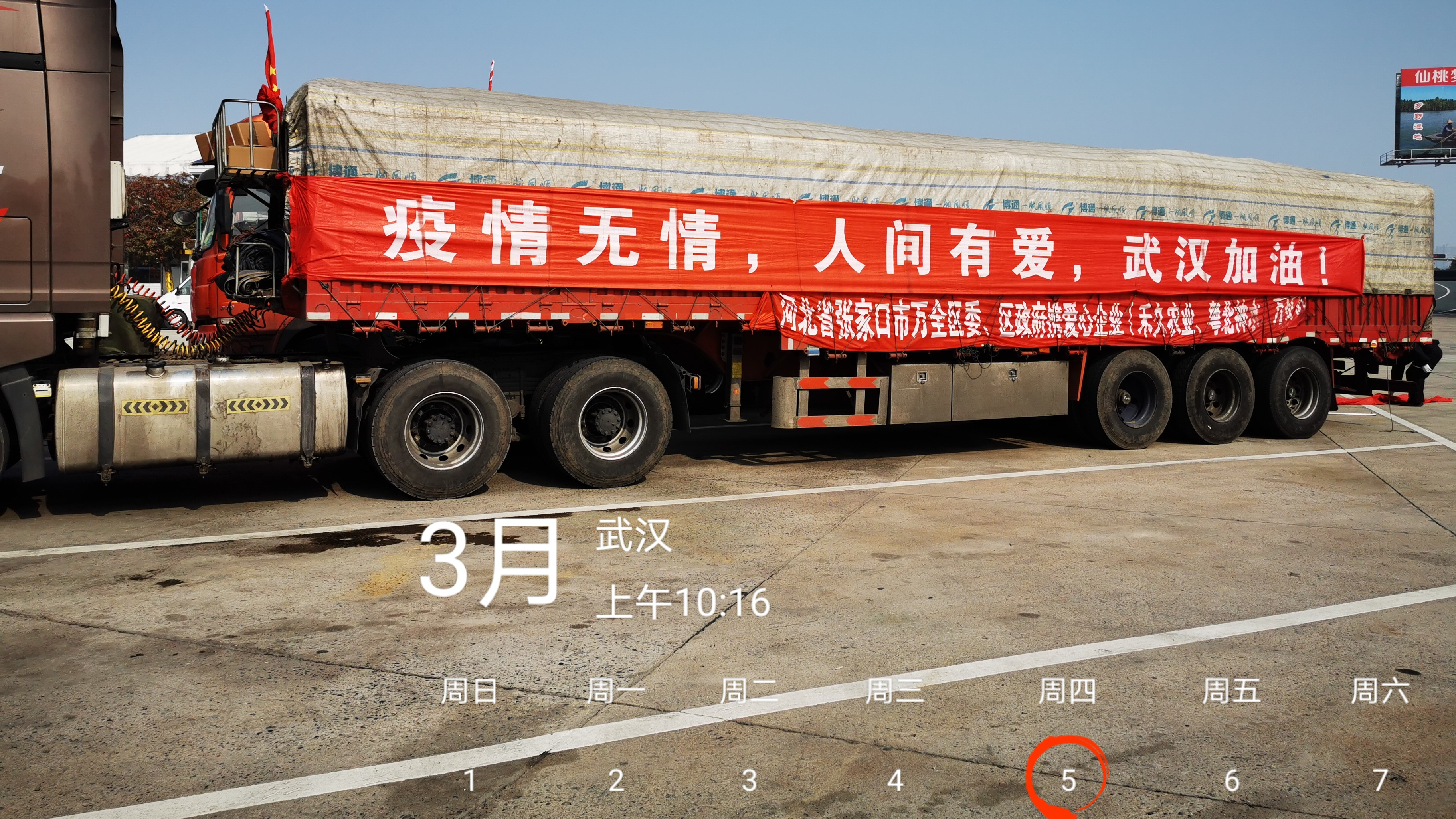03:32

Editor's note:
This is the 11th episode of our series "Faces Fighting Coronavirus" chronicling people from different walks of life who are affected by the outbreak as well as those who are trying to keep their lives as normal as they can to keep our society running. Here you can find the first, second, third, fourth, fifth, sixth, seventh, eighth, ninth and 10th stories.
Our 11th episode documents the travels of a Chinese trucker in and out of Wuhan amid the coronavirus outbreak.
Qu Shenghua returned home Monday night from his 14-day quarantine – the first time he came back home in 70 days though he had dropped by several times.
A former heavy truck driver, Qu resumed his decade-long occupation when he learned in late January that people in Wuhan – the then ground zero city of the deadly coronavirus – were confronted with a scarcity of food and other daily necessities given the abrupt lockdown.
"I talked with my wife about my decision. She wanted to go with me but I objected because I didn't know when I would return home and she had to stay to look after the children," Qu told CGTN. He departed on January 26, the second day of the first lunar month in the Chinese calendar, without informing his mother who only learned from the news that he went to Wuhan.

In his first haul, Qu went to Tengzhou in east China's Shandong Province to clean potatoes brought from Zhangjiakou and delivered them along with other groceries to Wuhan, where he heard there were farmers whose vegetables were going bad under the lockdown. He then headed to adjacent Xianning, a city that closed its borders on the same day as Wuhan, and brought the greens out to the land port of Erenhot in China's northern Inner Mongolia.
In the next 40 days, Qu made numerous runs to cities throughout the country, traveling some 16,000 kilometers. Aside from helping farmers offload their rotting vegetables, he delivered much-needed fodder to poultry farmers in Wuhan. Factories resuming production relied on the equipment Qu transported to the city. Residents were able to get essential foods that were among his cargo. Hospitals were able to get donations of medical equipment thanks to Qu risking his safety to enter Wuhan when hospitals dealing with a surge in patients were running short on supplies.
He and his fellow truckers nationwide were risking their lives by going through with what they did. They coordinated the tremendous logistics of moving goods using an Uber-like app for hailing trucks called Manbang, which had arranged a total of 5,800 trips to Wuhan in February. The platform usually had seven million trucker users, accounting for some 90 percent of all Chinese heavy truck drivers.

A truck carrying protective goggles arrives at a hospital in Wuhan, central China's Hubei Province, February 5, 2020. /Courtesy of Manbang Group
A truck carrying protective goggles arrives at a hospital in Wuhan, central China's Hubei Province, February 5, 2020. /Courtesy of Manbang Group
While the dangerous coronavirus confined people to their own homes, driving the long haul during the coronavirus outbreak put truckers at risk of infection in addition to potential perils brought by fatigue and inclement weather. It was much easier for them to catch the virus, and also to spread the virus as they were always on the move.
"My mother sent me some 20 messages every day, even at midnight. My wife had cold sores and an itchy throat just two days after I left. While I was away traveling in and out of Wuhan, they usually stayed up all night," Qu said.
Being a trucker is tough. Qu and others in his profession must endure long periods of isolation and an irregular routine when it comes to sleeping and eating. The stress took a toll on his body and mind after a decade in the business, so Qu settled down by opening a maintenance shop for trucks.
His decision to get back into driving, even if just for the duration of this outbreak, brought all those psychological burdens back, and more. He and his fellow truckers were facing criticism all the way to Wuhan, with some people accusing them of charging whopping prices during the outbreak as fewer truckers are willing to deliver goods, even though they hadn't. Qu even gave up on lucrative orders.

Qu's calendar of his trips to Wuhan /Courtesy by Qu
Qu's calendar of his trips to Wuhan /Courtesy by Qu
Additionally, they had to deal with difficulties that continued to emerge while on the road. In order to contain the spread of the coronavirus, most cities assigned health codes, a color-based tracking system to identify people's health conditions. However, for long-haul truckers, different standards adopted by different places did not make things easy. "I went for a health check in Hubei's Yichang, but I don't know if the result would work elsewhere," said Qu's colleague Wang Hui from Anhui Province.
With a majority of service stations closed, they had to cook for themselves. "I brought utensils with me and cooked porridge, fried eggs, boiled noodles. When I was in a hurry, I had instant noodles," Qu said. Most of his days were spent in the narrow cabin, working, eating, sleeping and making calls home.
It was a grind living in the truck for over 50 days. "But when a doctor gave me a lunch box while I was unloading medical supplies at a designated hospital, I realized that everything was worth it. In the early days, they even didn't have enough proper meals."
Video editor: Qi Jianqiang
Article written by Wang Xiaonan
Wang Le contributed reporting.
Cover image designers: Yin Yating, Sa Ren, Liu Shaozhen
Supervisor: Zhang Shilei